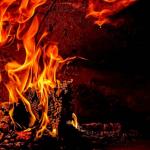Massimo Faggioli is a theologian who teaches at Villanova. With a name like that (trigger warning for profiling), you might expect him to be on the Roman Catholic team of western Christianity. Since he writes regularly at Commonweal and is a defender of the Second Vatican Council, he is also a nemesis for some traditionalist or conservative Roman Catholics (yes, for the uninformed, Roman Catholic is not synonymous with conservative or tradition).
Yet for all of the differences between him and me (as a Reformed Protestant of decidedly anti-modernist sensibilities), Faggioli puts his finger on a problem that bedevils Christian higher education, both Roman Catholic and Protestant. Here is his take on the Roman Catholic side of matters:
This rise of Catholic anti-liberalism marks a regression in the ability of Catholics to understand the problem of the state and of politics in our age. But it also says something about the state of Catholic theology, especially in America. I believe that the fate of Catholic theology in the Western world is inseparable from the fate of academic theology. In order to survive and flourish, theology needs universities, publishers, and journals. You can just about imagine the church surviving intellectually without academic theology, but I think it would be the poorer for it. Especially in the American system, where there is no constitutionally established church, academic theology is part of a religious and ecclesial Catholic establishment. But we cannot assume the institutions that support academic theology will last forever. And for Catholic academic theology to be healthy, it cannot depend entirely on a few great institutions like Notre Dame and Georgetown; it also needs the many smaller Catholic colleges, many of which are now struggling to stay open.
The present wave of anti-liberalism does tell us something about what’s happened to liberal Catholic theology and religious-studies departments in the past few years. As a faculty member in the theology and religious-studies department at Villanova University, I found what Archbishop Charles Chaput had to say after his lecture here significant. Someone asked him about the role of John Paul II’s apostolic constitution Ex Corde Ecclesiae (1990) in Catholic universities today. He answered that the document, issued by the U.S. bishops in 1999 to implement Ex Corde, “had no teeth.” This was as frank an acknowledgement of the estrangement between Catholic theologians and the church as one could ask for.
What happened in the years between the Land O’Lakes Statement (1967) and the implementation of Ex Corde Ecclesiae emancipated theology from ecclesiastical control, but it also emancipated the Catholic Church from academic theology. . . .
Catholic scholars of literature, art, history, etc., could teach a kind of Catholic studies that focused on the high cultural ideals of the Christian West and largely ignored or rejected post-conciliar theology.
The work of Catholic theologians became less and less important to many Catholic leaders (bishops, public intellectuals, big donors), who instead turned their attention to initiatives that addressed the “culture wars.”
Here is what Faggioli illuminates about Protestant higher education:
For starters, evangelicals have even less invested in academic theology than Roman Catholics. Plenty of Protestants self-identify as Christians more from an encounter through a Billy Graham (trigger warning) “crusade” or following a televangelist than they do through sitting under the ministry of the word each Sunday, learning the catechism of their communion, and engaging in family worship during the week. Theology has much less of a presence in popular Protestantism than it did in the official sectors of Roman Catholicism.
That means that when it comes to the mantra, popular since Francis Schaeffer came to the States on the coattails of the Beatles, “the integration of faith and learning,” most of the reflection that seeks to inform scholarship with Christianity comes much more from personal experience than actually theological training or biblical study. You may be an expert in imperial Chinese pottery, but your understanding of doctrine and Scripture may be limping along with the college and career Sunday school class.
In which case, Christians, who should be opposed to populist anti-intellectuals because of all the Greek, Hebrew, Latin, philosophy, and theology needed to reckon with some of Christianity’s more challenging claims, wind up channeling the same kind of impatience with intellectual elitism that pervades even the corridors of secular colleges and universities as explained by Benjamin Paloff:
The inner workings of academe are opaque, except for the fancy titles and ceremonial self-congratulation — the “pomp and circumstance” — that remain the most public-facing aspects of the academic life. No wonder, then, that some assume that expertise is little more than the public display of personal opinions, and that they merely need to give those opinions an institutional imprimatur. Much like their approach to party politics or the “administrative state,” those riding Trump’s coattails are not seeking to tear the building down so much as to fill it with tenants who look like them.
What they are missing is how much work is invested in producing actual knowledge, how a degree is the sum of that labor and not a piece of paper. Such hardheaded effort, which seeks to account for or accommodate recalcitrant data rather than exclude it, is the hallmark of expertise.
Paloff may be forgetting the older anti-elitism in American higher education that accompanied Jesse Jackson’s leading the chant at Stanford University — “hey hey, ho ho, western civ has got to go.” But whether an intellectual egalitarianism comes from the Left or the Right, it’s not something that Christians (Protestant or Roman Catholic) should encourage. Otherwise, the trinitarian nature of God is just one more abstrusity to abandon.
And that leaves us with H. L. Mencken’s poignant quip: A Christian is someone who believes in three gods but draws the line at one wife.












